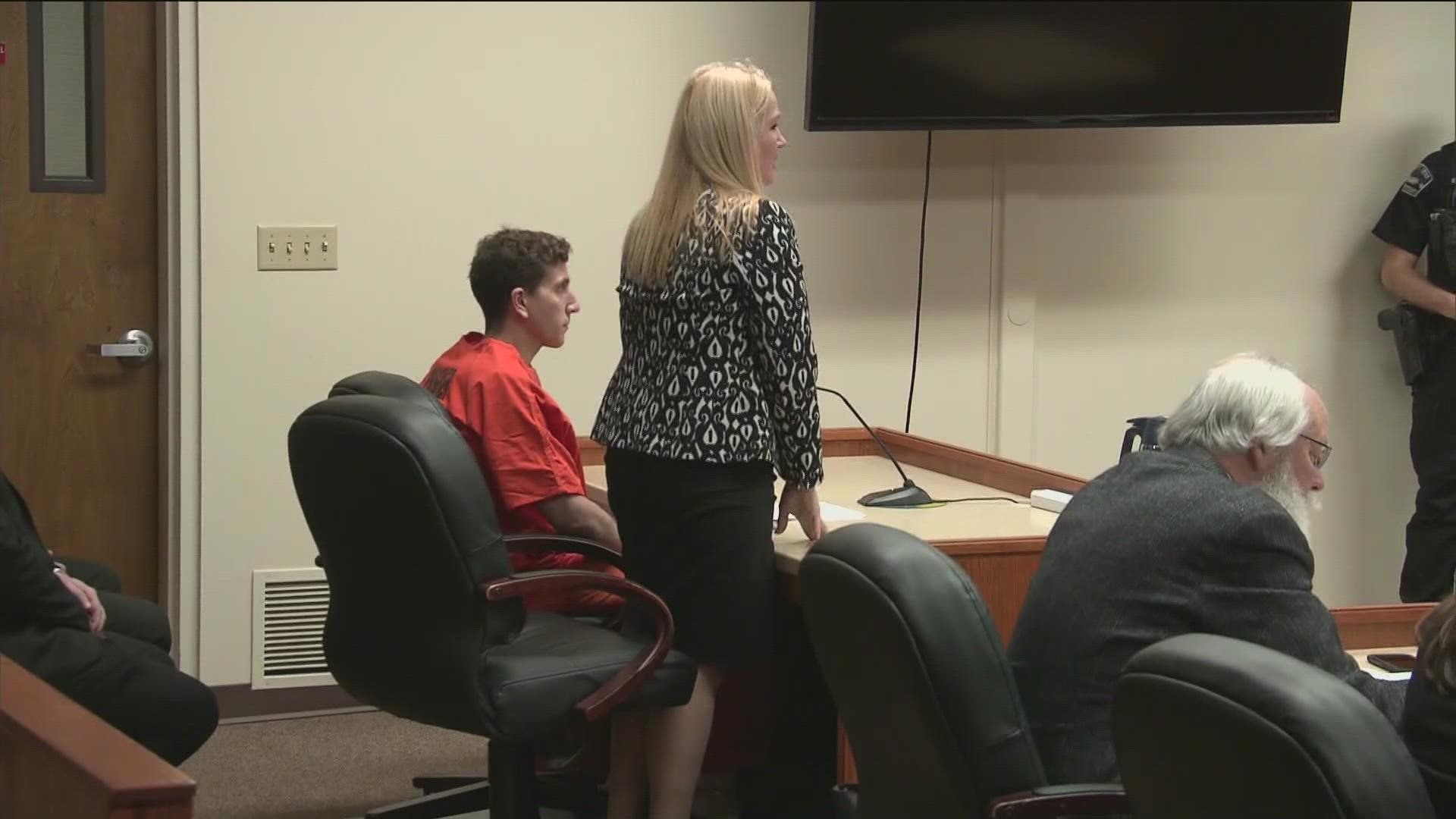SEATTLE — Washington State University doctoral student Bryan Kohberger, 28, verbally acknowledged the charges against him in an Idaho court Thursday in the stabbing deaths of four college students last November.
Kohberger has been arrested for the murders of four University of Idaho students in mid-November, Kaylee Goncalves, Madison Mogen, Xana Kernodle and Ethan Chapin.
Unlike the state of Washington, the death penalty is considered the maximum penalty in Idaho when it comes to defendants who either plead guilty or are found guilty of first-degree murder.
Since the crime took place in Idaho, lethal injection would be the legal form of capital punishment.
The county prosecutor will ultimately make the determination of whether or not the death penalty is pursued, but he is staying quiet, and for a reason: he’s been put under a gag order.
"There appear to be indications that the magistrate judge does have some concerns about information that could be released to the public, and therefore prevent us from finding an unbiased jury for this case," said Shaakirra Sanders." University of Idaho law professor.
Sanders said it has to do with the fact that Latah County is a relatively small community, and the public interest in the case has been huge; something she said could make it difficult to find an unbiased jury.
The case against Lori Vallow, another Idaho murder case recently, ultimately changed venues for a similar reason.
"There is some precedent for this," Sanders said. "That had to be moved from another small Idaho county to Ada County, which is where Boise and the Capitol is -- its largest city."
Sanders said within two weeks of a preliminary hearing, Kohberger will be allowed another hearing where a judge will again determine whether they feel they have enough to keep him in custody.
So is the case against Kohberger strong? It's something the Latah County Prosecuting Attorney Bill Thompson has stayed tight-lipped about.
"We are limited by what we are allowed to say, by the courts, outside the courtrooms," Thompson said last Friday at a press conference.
But another University of Idaho law professor described to KING 5 what he feels authorities have on him.
"Surveillance footage, and DNA evidence, and cameras and phone locations and all these types of things," said Samuel Newton, University of Idaho Assistant Professor of Law.
But he said these things are circumstantial, so there are many holes the prosecution is likely working to fill.
“Direct evidence of him committing the crimes," Newton said. "There’s not a witness who sees it.”
Newton encourages anyone with any information on what happened or on the relationship between Kohberger and these victims to share it with police.
Both sides are busy building their case.
“This is not the end of this investigation, in fact, this is a new beginning," Thompson said Friday.

